Bubblin’ Up: Avalon Emerson
The San Francisco-born software developer invites XLR8R to her new Berlin home to discuss her musical ambitions.
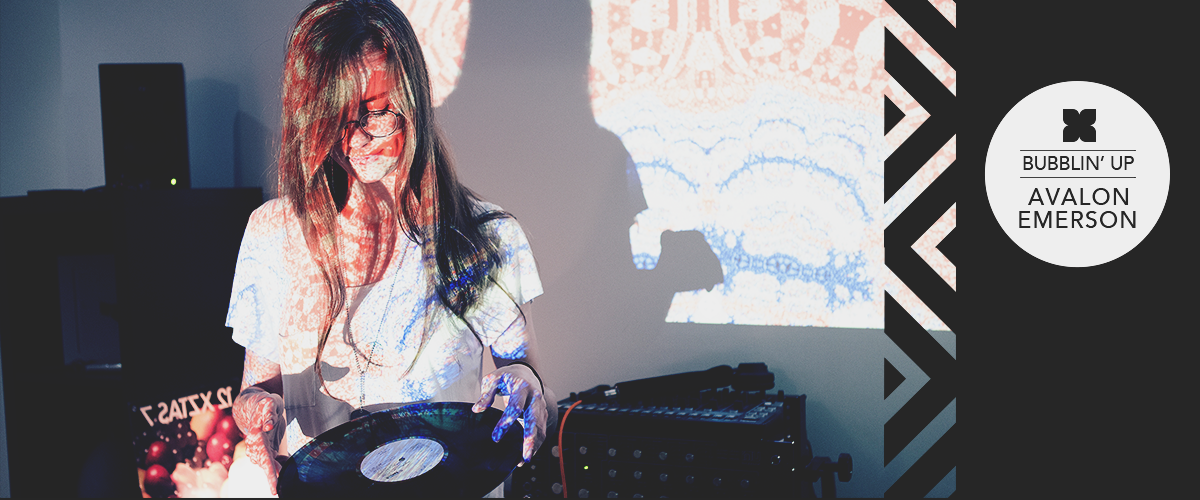
Bubblin’ Up: Avalon Emerson
The San Francisco-born software developer invites XLR8R to her new Berlin home to discuss her musical ambitions.

It’s a small world. As a 20-year-old, Avalon Emerson, the rising DJ-producer, was an intern at the former XLR8R HQ in San Francisco. Just last week, we sat down in her new base of operations, a beautiful modern apartment in the southern part of Berlin, to hear her story and to learn how she balances her musical endeavors with her full-time day job as a software developer.
It’s been a steady rise for Emerson, a journey that has taken her from Arizona—the place where she purchased her first pair of turntables—to San Francisco, where she began throwing monthly parties with her flat mates at their large warehouse-style flat. It was there, in 2009, that she first started DJing with any regularity—but the foundations for her success can be traced back to her earlier years where she began record collecting and recording in bands. Now, as her touring schedule continues to grow, it is becoming evident that Emerson possesses a rare maturity and natural ability to spot the emotional connection between records.
Outside of the DJ booth, she is also making a name for herself as a producer, following a string of self-releases via her personal Soundcloud page, as well as some physical EPs through small labels including Icee Hot, Spring Theory and Shtum—the latest of which dropped just last week via the latter Dresden-based imprint. Big things are expected to follow, namely more EPs and perhaps, in due course, an LP. But it’s clear that Emerson is not getting ahead of herself too quickly.

You’ve now been DJing for about six years, and producing for about four. Do you now feel that your profile as an artist is really starting to grow?
I guess I’m fortunate enough that now I play more peak-time slots, instead of just opening for out-of-town DJs—so from a performance perspective, it’s a different kind of show and medium to play with. As far as my productions go, I still feel that I am exploring and learning what types of sounds and musical medium I like to create in. Turns out to be a lot! So far it doesn’t feel like my voice is tied to a specific sound or genre. I make what I like—and I think it still ends up sounding like me, whether or not it makes it harder for promoters to be able to put me into a genre box.
When you do go into the studio, are you able to produce the sound that you have in your head?
Sure! I feel I can do that quite well. Often I will already have an idea of what I want to do—maybe I’ll have a melody, rhythm or sound I want to kick around with, or I’ll be obsessed with a record from my childhood or something where I really like the abstracted idea or technique—and I will try to explore that idea in the studio by doing it my way. Like I was listening to a lot of Propaganda and Anne Clark for a bit, so I decided to make my own spoken word vocals over a dance track. There are so many different areas to explore with production—I am definitely not bored yet!
“I really like DJing—when it’s good it’s the absolute best feeling on earth, and when it’s bad it’s horrible and gets stuck in your head for a week. But with production, it’s still something that I just feel like I have to do to stay sane.”
Your DJing dates back to 2009 when you moved to San Francisco, but your first physical production was released in 2014, via Icee Hot. How do you think you’ll balance the two going forward?
I really like DJing—when it’s good it’s the absolute best feeling on earth, and when it bad it’s horrible and gets stuck in your head for a week. But with production, it’s still something that I just feel like I have to do to stay sane. I still love releasing something into the wild and seeing how people respond to it, whether it be my friends, peer producers, critics, or total strangers on the internet—so I think DJing is fun, but I kind of see more opportunities to grow and explore in actually producing the music.
When you step onto stage for a set, do you still feel nervous, or has that feeling passed?
The shaky legs kind of thing has stopped happening, though I still get a mental sort of performance anxiety. I bet that doesn’t ever completely go away.
Like when you played at Panorama Bar recently?
That was probably the most intense DJ-performance pressure I’ve ever felt. I was doing the closing slot, just after KiNK‘s live set—who can work a crowd like literally nobody else I’ve ever seen—and it was shoulder to shoulder packed by the time he played his last tune. Once I got through my first few tracks, I sort of realized that I’ve done this sort of thing before, and I’ve even been in the crowd quite a lot at Panorama bar. By the time I was a couple hours in, I saw from the DJ’s point of view why so many people think it’s the best club on earth. I ended up playing for five hours, and not to get too gushy, but the whole thing was magic.
Are you very critical with yourself, both with your productions and your sets?
Yes, both. If five people come up to me after a set and tell me that it was a great show, and then one of my friends said I could have had a cleaner transition here or there, then it’s easy for me to think “Oh fuck.” It’s honestly kind of a big deal, and I know that as a performance artist, it’s not going to go perfectly every time— but at the same time, I am kind of a perfectionist in a lot of other areas of my life, and I need to learn to let go a little bit and enjoy the journey of learning.
Does this mean that you throw away a lot of sketches or loops?
Yes—but I hope I am at the point where I can recognize that something is worth saving, even if it’s the wrong song for that experimental long-tail compression on a hi-hat reverb.
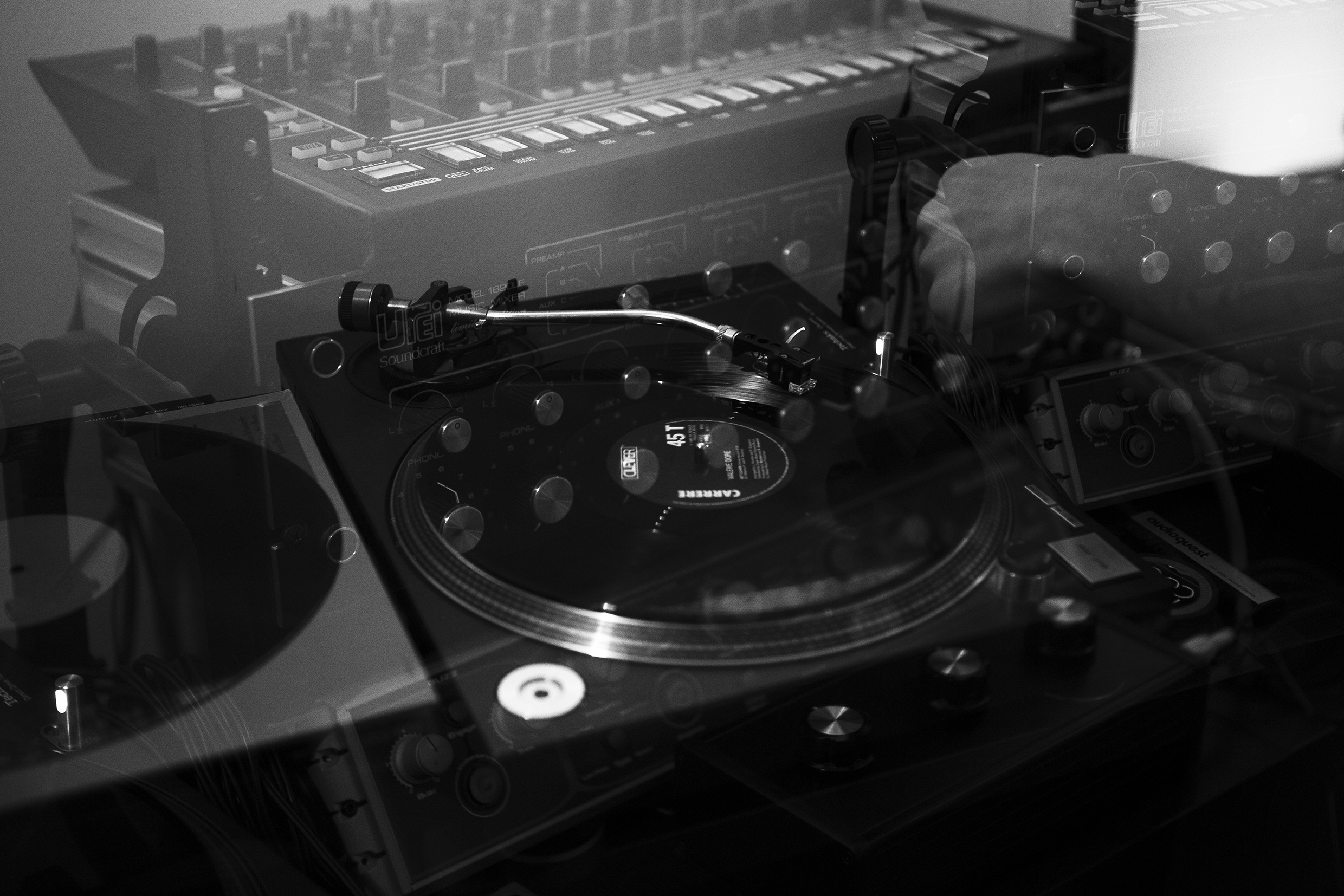
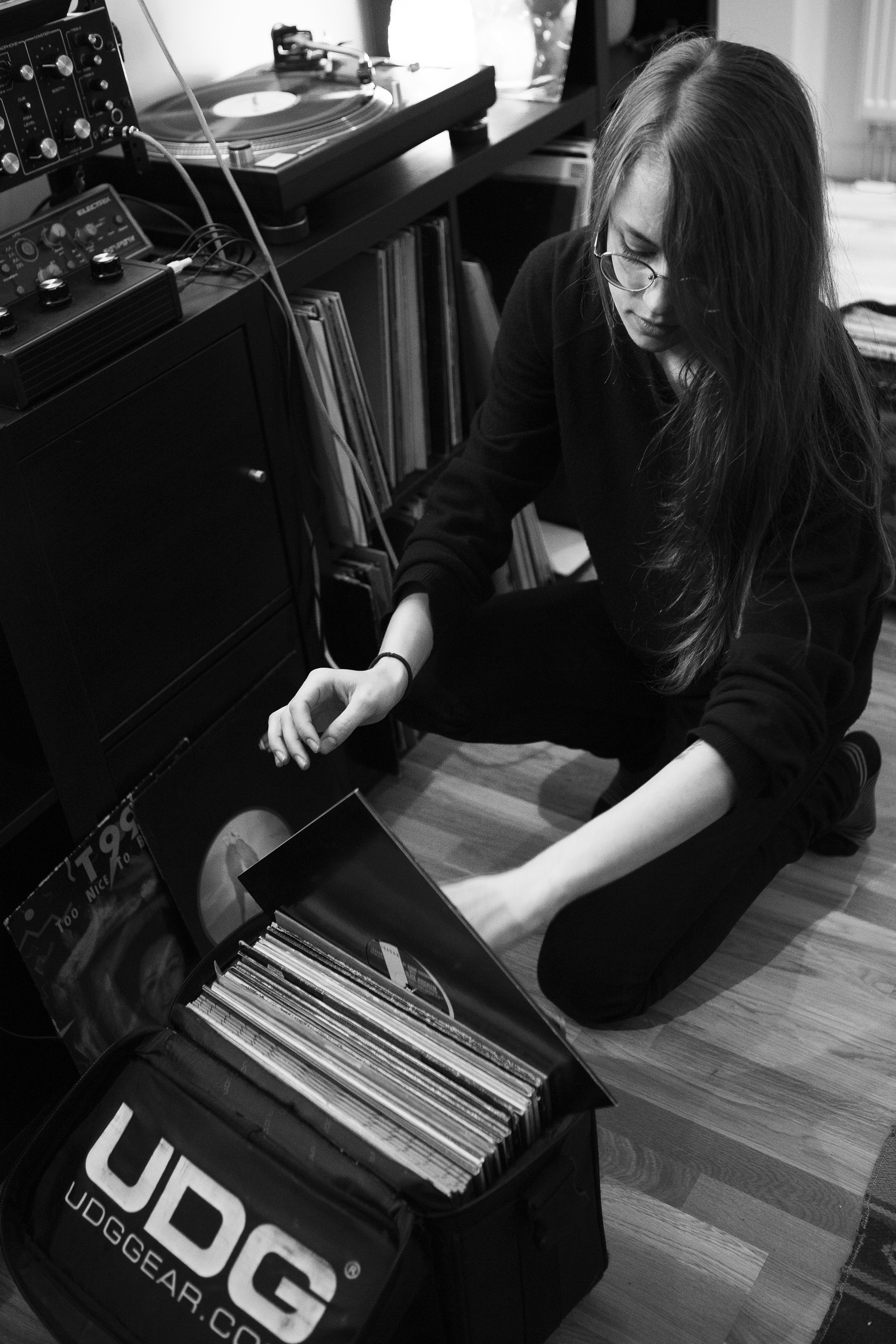
Away from music, you also work as a software developer. How do you balance the two? Do you anticipate that music will eventually take over?
I don’t know. As an unwilling citizen in these late-capitalist times, I have to make money. I code. I find that if you are not 100-percent relying on your art for the food on your table and the rent, then it is still an enjoyable release—and it also offers you some creative freedom because you don’t have to take every gig that comes around and you don’t have to do every remix. Of course, the balance can sometimes be really hectic—like when an EP comes around and you do a lot of press, or sometimes you have four weekends in a row where you’re out of town, and then on Monday you go into the office and argue on Git-hub about semicolons or something. It’s a constant struggle to find balance, but I still feel extremely fortunate to have two fulfilling ways to spend my time on this earth.
“I find that if you are not 100-percent relying on your art for the food on your table and the rent, then it is still an enjoyable release—and it also offers you some creative freedom because you don’t have to take every gig that comes around and you don’t have to do every remix.”
It sounds quitting the day job is a long way off, in your head at least?
It’s not necessarily the goal right now. When music becomes the day job, you also get the baggage that comes with it. Art is supposed to be the thing that you love to do, and that you don’t do for anyone else. I don’t release music that I don’t like. Ideally, I would love to get to a point where I’ve built up a momentum and have a studio where I can lock myself away during the week, then play gigs on the weekends—but that’s not where I am right now.”
How do you balance the time? Is it software development in the day and then music around that?
It’s a Monday through Friday thing with the coding, then I work on music before, after or on weekends around that. But I’m finding that if I have a finite window in which to be creative, then it’s sometimes advantageous for the creative process, because you don’t have infinite amounts of time to bullshit around. I have to formulate my ideas and get them down as fast as I can. I’m obsessed with streamlining by workflow in Ableton so that I’m efficient when I sit down in the studio. I have multiple templates, and my samples have a pretty OCD-level organizational hierarchy.
“I can’t help but connect with music emotionally. When you do that, you build a library of musical gems that you can sprinkle around a party.”
You began DJing properly in 2009—but when did you actually learn the basic skills?
I bought turntables in college in Arizona. But for me, DJing isn’t about beatmatching—it’s about picking music to play,and identifying emotions that certain tracks give off and that people catch onto, and then pairing them with other songs that compliment that emotion. In that sense, I guess I’ve been practising forever. It came very naturally to me—I can’t help but connect with music emotionally. When you do that, you build a library of musical gems that you can sprinkle around a party. That’s just something that I love to do and will explore for a long time.
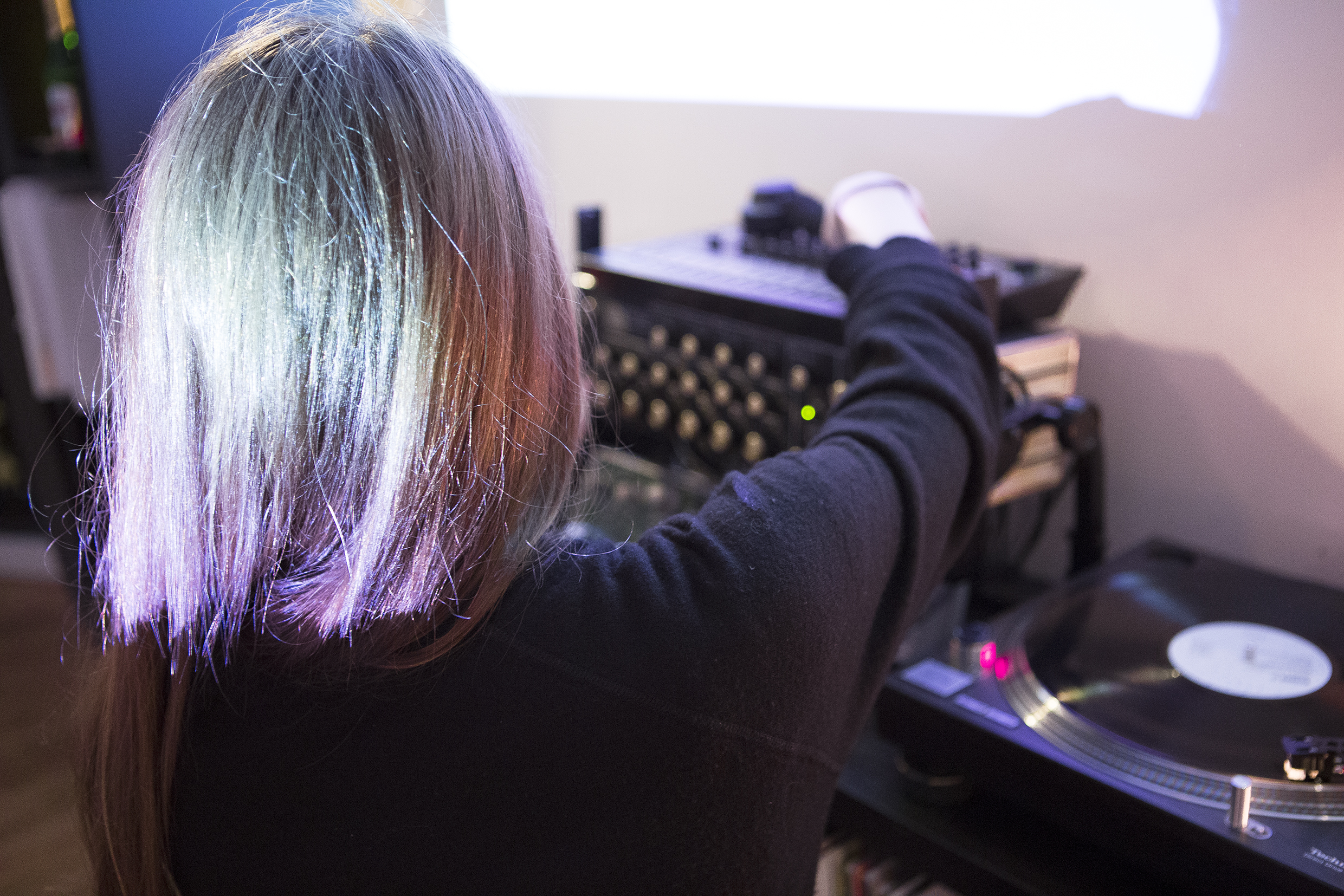
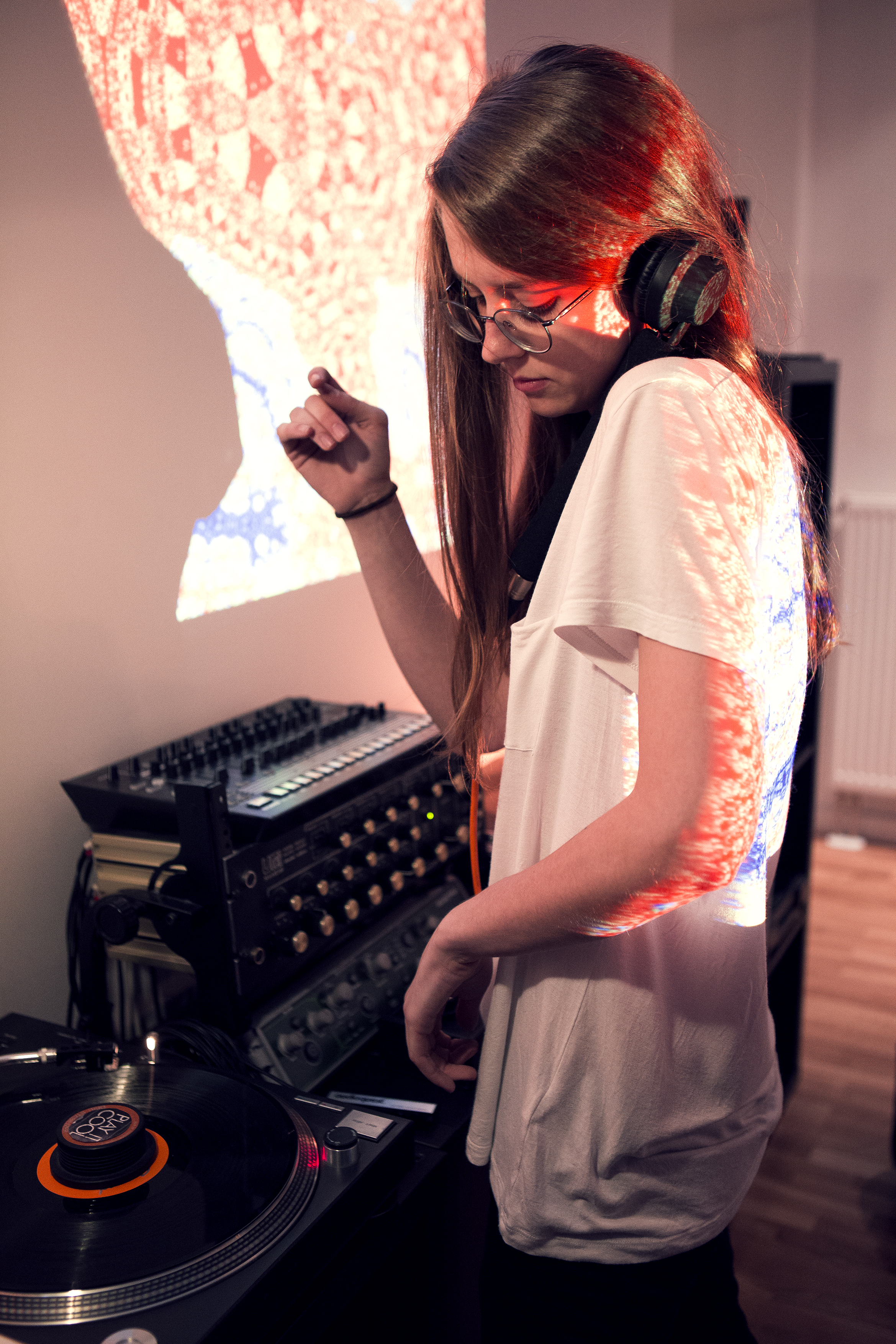
What was behind the move from Arizona to San Francisco in 2009?
I was born there, though I grew up in Arizona. After a tech internship halfway through college, I stayed. Haven’t regretted the drop-out quite explicitly yet.
But was last year’s move to Berlin motivated by a desire to push your music?
Yes. That one was motivated by music! I found myself less identifying with what the city had become, and I decided to explore the music more, which would have been really hard to do with my job at the time. My day job now is a bit more flexible—I can work remotely every once in a while and can leave early on a Friday if I have to fly out to a gig.
Moving back to San Francisco, that was when you lived in a warehouse and began throwing parties?
It was more of a big shared house—I mean, we didn’t shower in the kitchen or whatever! It was full of people from all over the world, and I loved being around so many different cultures, especially coming from Arizona which is sometimes quite homogeneous.
How regularly did you throw these parties?
Not so often—once every few months. There was always a theme and we would put together a special flyer, and make a little Google form where you’d have to sign up. If you weren’t on the list then you couldn’t get in. Pay at the door, open bar, everyone in the house contributed, and the vibe was always awesome. In fact, just last summer, the only wedding I’ve ever DJed at was for my two friends who I met in the warehouse—a girl from Paris and a guy from Bavaria who live in Berlin now.
So even at this time, you weren’t DJing very frequently?
No. We were just having fun building the party and the community of people. DJing was just a part of this—but it was never a means to becoming a DJ. I never had the mindset that I was going to practise, gain a certain number of points in this skill set to climb the ladder. It just sort of happened. My friend, Matthew, who was the one who taught me how to really blend records, and I would play these parties, so that’s where I learned to DJ and program for a whole night. That’s how the love for producing took over, mainly through editing tracks. When I reached 21, and got to DJ in clubs—like a “real DJ”— finally—I learned how much it sucked having to play bullshit 45 minute sets where my friends had to pay twelve dollars for a drink.
How active are you with collecting records today?
I play a fair amount of vinyl, and I work right next to Hard Wax, which is dangerous—which is also kind of close to the Record Loft, which is even more dangerous. I am also obviously on Discogs quite a lot. I left a bunch of records in San Francisco, and every time I go back I try to bring a little crew of twelves back with me. But at the same time, I don’t want to be too much of a hoarder. These little plastic plates are just ethereal beings, passing in and out of our lives. Eventually they’ll all get a Club Mate spilled on them, dish on a hot CDJ, or suddenly become something someone wants to pay a hundred dollars for.
“I don’t want to be part of this commodity-party noise-filler sort of scene, where it doesn’t matter what kind of sound is coming out of the speakers as long as the club sells bottles.”
Can you remember your first international gig?
Yep—it was in Vancouver. My sister came with me. I only really started touring internationally when I moved to Berlin, and that was a time following my first release in 2014—I signed up with both European and North American booking agencies. By the time I had come to Berlin, I had a two month tour planned for when I returned to the States. That was the first time that I had the kind of crazy schedule where you play Thursday through Sunday and go directly from the club to the airport sort of thing. That was a glimpse into how the future life could possibly be—and that was part of the realisation that I’ve got to keep in mind what I want from life in general, and balance how I want to share my art because it’s an extremely personal thing too. I don’t want to be part of this commodity-party noise-filler sort of scene where it doesn’t matter what kind of sound is coming out of the speakers, as long as the club sells bottles.
So are you very selective with the gigs that you play, as a result of that?
I think I am still learning this, but I’m pretty open-minded when it comes to taking on shows. I kind of know what I don’t want with gigs, but I still take a lot of gigs just to see what is going on. I haven’t played a lot of festivals, and I’ve had a good time at most of my gigs. Some of the best gigs are in non-major cities—like Freiburg or Calgary—but places like New York or London can actually be pretty tough.
You’re first release, “Warm Up Love,” was uploaded onto your Soundcloud in 2012. Your sound has changed considerably since then—was that intentional?
No—that’s just how it goes. If I try to consciously make something then it always ends up sub-par, and I will never really do anything with it. That’s why I find it pretty hard to do remixes, where you have a sonic box in which the product must fit.
Did production seem like a natural step, to support your DJing?
Not really—it was sort of the other way around. I’ve been making music for a really long time, from pedal-board noise or dreamy guitar folk when I was young to now. I’ve been pretty tight with computers since day one, so I’d have the torrent of some multitrack program, and invite my friends into my bedroom to record—with my bed leaned up against the wall—experimenting with microphone placement on their 200-dollar drum kit. It’s always been this thing that I enjoy doing as a creative release, along with feeding my technical desire to learn programs and new synths and techniques. The whole world of sound engineering is extremely interesting to me.
Are you completely self-taught?
I think you can learn just about anything on the Internet—and being around people doing cool things also lets you pick up stuff from them too. But I don’t think anyone is totally self-taught. When I was first interning at XLR8R, I met Christopher Willits, who makes gorgeous ambient music. He works with Overlap Studios in the East Bay with Ryan Kleeman. I’ve gone over there many times to work on mixing down a track or something, and have learned a lot about both the hyper-technical side of the studio, and about life as a professional in this industry.
You’re first physical release was in 2013 via the Icee Hot imprint. How did that come about?
It’s kinda funny. I was already sort of going to release “Pressure” as part of a compilation for another label, when I heard Ryan—Ghosts on Tape—play a set at Public Works where he dropped his brand-new track, “No Guestlist.” I loved it, and so I emailed him asking him for it—but felt the need to reciprocate so I gave him some of my new stuff. When I sent him “Pressure”, Shawn and the other Icee Hot guys convinced me to do a whole twelve with them.
And then how did “Quoi” come about?
They asked if I had anything else so I sent them “Quoi” and they liked that one too! It was pretty quick actually.
“The first time I realized that a piece of music that I’ve done exists in some sort of physical form that could hang around on this earth after I die was pretty crazy.”
That must have been a nice moment.
Definitely. The first time I realized that a piece of music that I’ve done exists in some sort of physical form that could hang around on this earth after I die was pretty crazy.
Has an LP crossed your mind yet?
Yes. An album is definitely something I would like to do—but it has to be the right time. I don’t want to it to be a random hegemony of dancefloor tracks. To me, the LP format is best expressed in single idea, from one period of time. I’ll do it when I create this extra magical day of the week or when I don’t have to code 40 hours a week.
Do you have a particular goal in mind or vision of where you want to be further down the line?
An LP and a live show, could be really rewarding. I won’t stop DJing, of course. I think I have different ideas of where I want to explore as far as artistic identity and career go, but I don’t have one clear goal in mind yet—I don’t see anyone else’s career that I want to model myself after necessarily. Who even knows what the music economy will look like in ten years? I’m just going to keep doing my thing and see where it takes me.
All photos: Jill Bettendorff, jillbettendorff.photography
Projections: Isaac Cohen, cabbibo.com
________
Avalon will be playing at Simple Things Festival in Bristol on October 23/24.

